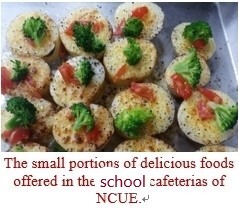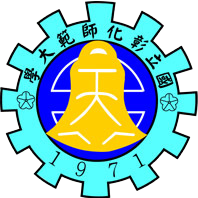SDG2.2.1 Campus food waste tracking
1.NCUE tightly controls the food waste of its two school cafeterias.
NCUE measures and manages the daily food waste of the two school cafeterias. Statistics showed that the average daily food waste generated by the two school cafeterias in 2021 was lower than 0.025 tonnes.
2.NCUE has implemented a food waste reduction policy.
As part of NCUE’s food waste reduction policy, the two school cafeterias classify the daily food waste generated with food waste bins placed in both school cafeterias. Specially appointed cleaners collect the food waste every day, and designated enterprises regularly collect the food waste for resource recycling. The methods and strategies for reducing food waste are as follows:
2.1 NCUE adopts a standardised production process when preparing meals that uses ingredients effectively and reduces the serving portions to ensure that the teachers and students can finish all their food, reducing waste.
2.2 NCUE regulates the selection, purchase, and management of ingredients to ensure that their procurement, processing, and inventory follow standard procedures. They closely monitor the inventory and freshness of all kinds of food to ensure safe and effective use. Food nearing its expiration date is made into ‘light lunch boxes’ or ‘lunch boxes under 50 NTD’ to promote sales, reduce waste, and ensure food safety. The cafeterias’ effective use of ingredients enables teachers and students to enjoy nutritious food at low prices to reduce their financial burden and food waste.

Annex:
Please refer to Annex 2.1.1 for details on School Cafeteria Discount Measures.

